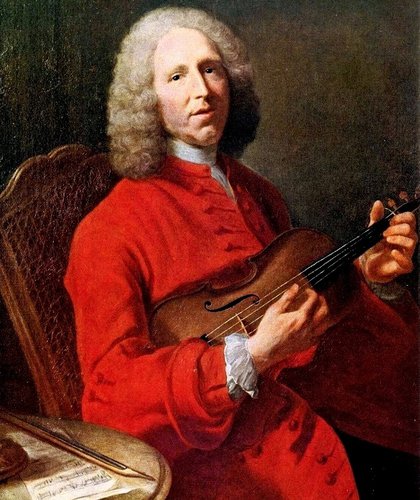
Jean-Philippe Rameau
Not much is known about the early years of the French baroque composer, Jean-Philippe Rameau (1683-1764). He was born in Dijon and studied in his hometown before moving on to study music in Milan. From 1715 he was employed as a Cathedral organist in Clermont Ferrand. It was only in the 1720s, with the publication of his Traité de l’harmonie (Treatise on Harmony) in 1722, that he became well-known; the long list of harpsichord works with which he followed that success meant he soon became famous throughout Europe. He moved to Paris where, with the aid of an influential music supporter, he established contact with the royal court and the royal opera. He was almost fifty when, in 1733, he composed his first opera, Hippolyte et Aricie. The novel and unusual work shocked the audience, used as it was to Lully’s style, and Rameau subsequently became the target of vehement attacks. Besides Lully’s legacy, the composer also had to contend with the popularity of contemporary Italian operas. Nevertheless, after the initial turmoil, Rameau soon became accepted and popular. His works were being performed up to the end of the 18th century, and his compositions were rediscovered in the second half of the 20th century. The Sun King gave him the title Compositeur de la musique du cabinet du Roy (Composer to the Royal Cabinet) in 1750. The historical influences on his music were acknowledged even during his lifetime. Today he is respected as a pioneer of opera and suite literature, of progressive musical thinking and as the founder of modern harmonics.